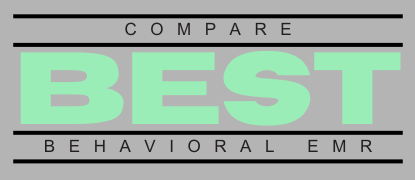As a behavioral health practice owner or clinician, you understand how critical your electronic medical record (EMR) software is to your daily operations. The right behavioral health EMR can significantly streamline workflows, reduce administrative burdens, and ultimately prevent clinician burnout. But with so many options available, how do you identify the EMR solution that truly supports your practice and your team?
In this article, we’ll explore the essential features you should look for in a behavioral health EMR to minimize clinician burnout and enhance overall provider satisfaction.
Why the Right Behavioral Health EMR Matters for Clinician Burnout
Clinician burnout is an increasingly prevalent issue in behavioral health. According to a recent study published by the National Institutes of Health, healthcare providers are experiencing record-high stress and burnout levels, often due to administrative overload and inefficient workflows. EMR systems play a significant role in either contributing to or alleviating this burnout. A poorly designed EMR can create frustration through cumbersome documentation, repetitive tasks, and hard-to-navigate interfaces. Conversely, a thoughtfully designed behavioral health EMR can simplify tasks, automate routine processes, and give clinicians more time to focus on patient care.
Key Features of Behavioral Health EMRs That Reduce Burnout
1. User-Friendly Interface and Intuitive Navigation
An intuitive EMR interface is critical. Clinicians need software that is easy-to-use, logical, and requires minimal training. Look for EMRs with:
- Clear, simple dashboards
- Easy-to-find patient information
- Minimal clicks to access frequently used tools
A streamlined interface reduces frustration and allows providers to spend more time focusing on patient interactions and less time wrestling with technology.
2. Efficient Documentation Tools
Documentation is often cited by clinicians as one of the top contributors to burnout. Efficient documentation tools within your EMR can significantly reduce this burden by:
- Providing customizable note templates tailored specifically to behavioral health needs
- Offering voice-to-text or dictation capabilities to speed note-taking
- Automating repetitive charting tasks, like appointment reminders or follow-up scheduling
These practical features help clinicians complete their documentation faster and with fewer headaches.
3. Seamless Integration With Other Systems
A behavioral health EMR that integrates smoothly with billing, scheduling, and practice management systems reduces the need for duplicate data entry and minimizes administrative tasks. Look for software that provides:
- Built-in billing and coding support tailored to behavioral health practices
- Automatic synchronization of patient records across multiple platforms
- Easy connection with telehealth platforms, labs, and pharmacies
When your EMR integrates seamlessly, clinicians spend less time on administrative tasks and more time providing quality patient care.
4. Robust Reporting and Analytics
Effective reporting tools are essential for practice owners and clinicians alike. A good EMR should offer real-time analytics and reports that help your practice make informed decisions. Look for reporting features that:
- Track clinician productivity and identify opportunities for workflow improvement
- Provide insights into patient outcomes and treatment effectiveness
- Highlight compliance and documentation gaps to avoid regulatory headaches
Robust analytics help practices proactively address workflow challenges, ultimately reducing stress for clinicians.
5. Reliable Customer Support and Training
No matter how intuitive an EMR seems, questions and issues inevitably arise. Choosing an EMR provider that offers reliable, responsive customer support and ongoing training can dramatically reduce clinician stress and burnout. Ensure your EMR vendor provides:
- Accessible, timely support through multiple channels (phone, email, chat)
- Ongoing training resources, including video tutorials, webinars, or personalized training sessions
- A knowledgeable support team familiar with the unique needs of behavioral health practices
Additional Considerations When Choosing a Behavioral Health EMR
Security and Compliance
Protecting patient information is paramount in behavioral health. Ensure your EMR provider adheres to all HIPAA and security regulations, offering robust encryption and compliance support. This peace of mind can alleviate stress for clinicians and administrators alike.
Scalability and Customization
Your EMR should grow with your practice. Consider solutions that offer scalable plans and flexible customization options. A system that can adapt to your practice’s evolving needs reduces future stress and disruption.
Evaluating Your Current EMR: Is It Time to Switch?
If your current EMR is causing more headaches than it solves, it may be time to consider alternatives. Common signs your EMR is contributing to burnout include:
- Frequent clinician complaints about usability and documentation
- Increased administrative workload due to inefficient workflows or lack of integration
- Poor customer service from your current EMR vendor, leading to unresolved issues
If these issues resonate with your practice, it may be worthwhile to explore new EMR solutions that better align with your team’s needs.
Ready to Find the Right EMR? Get Your Free Practice Analysis
Choosing the right behavioral health EMR doesn’t have to be overwhelming. Our experts can help you quickly identify the best EMR solutions tailored specifically to your practice’s size, specialty, and unique workflows. Take advantage of our free practice analysis today. Simply fill out our short form, and our team will reach out to you with personalized recommendations to reduce clinician burnout and boost your practice’s efficiency.
